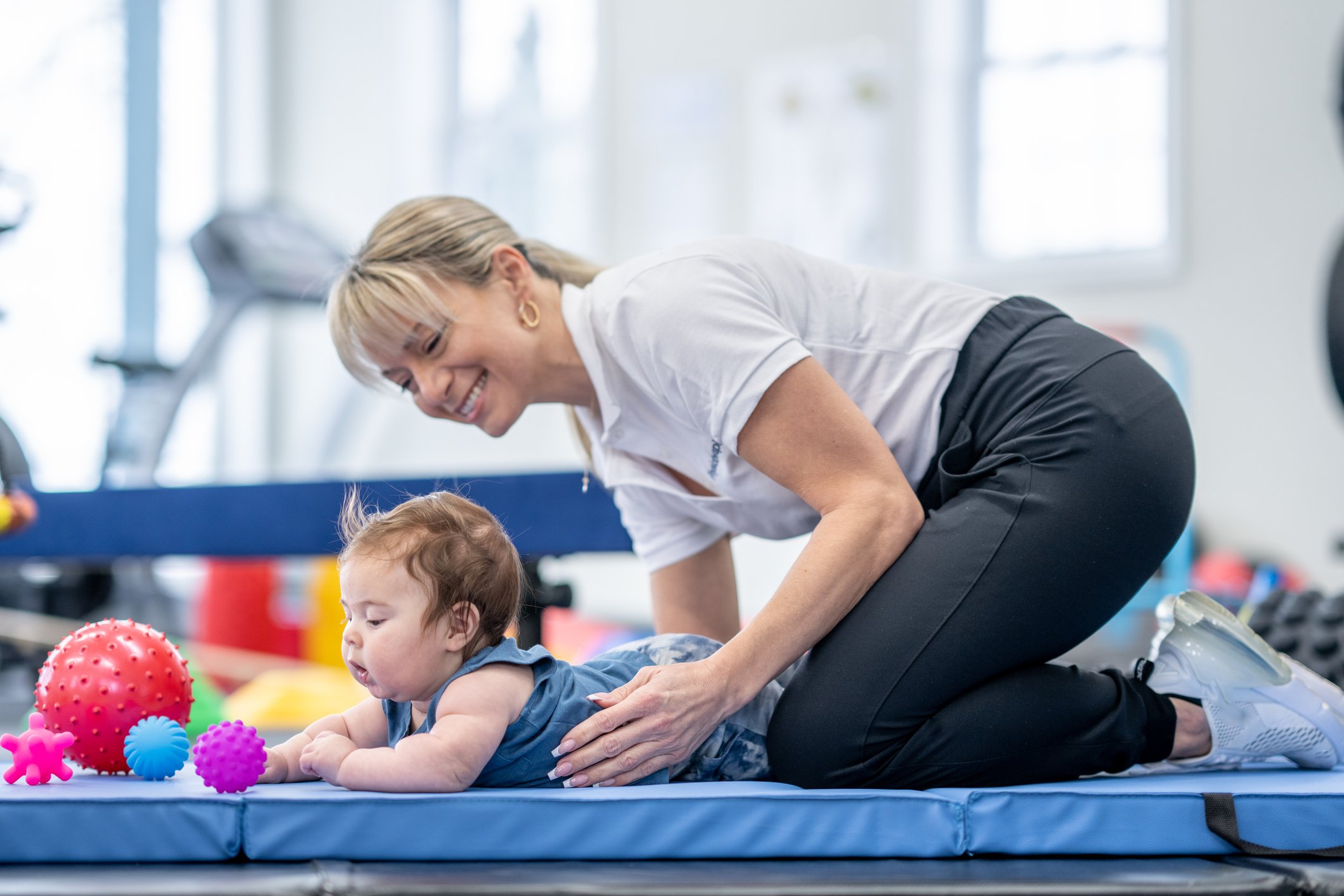Not only is playtime fun for your child, but it’s also an essential part of how they grow and learn! Through play, babies and toddlers build important movement, communication, and social skills that prepare them for everyday life.
Whether you’re looking for new ways to support your child’s growth or you just want to make playtime more educational, this guide is full of great developmental activities to try at home.
Use Tactile Play to Build Sensory Processing Skills
Sensory processing is how your child takes in and responds to information from their senses—like touch, taste, smell, sound, and movement. Tactile (touch) play helps your child become more comfortable with different textures and sensations, which can improve their ability to stay calm, focused, and engaged in daily life.
Here are some great tactile play activities you can do with your child:
- Play with Food: Letting your baby or toddler touch, squish, and explore their food helps them get used to different textures and builds their interest and curiosity in trying new foods.
- Play with Play-Doh, Slime, and Sand: These materials offer lots of textures and resistance, which helps to strengthen little hands and promotes creativity.
- Play with Textured Toys: Toys with bumps, ridges, or soft fabrics give your baby the chance to explore different tactile experiences in a safe, playful way.
- Walk & Sit in the Grass: Grass can feel tickly or strange at first, but it’s a great way to gently introduce new sensations while encouraging your baby to move and explore.
- Take Baths & Brush Teeth: These everyday routines involve water, soap, and different sensations on the teeth and tongue, all of which are valuable for building sensory tolerance and awareness.
Encourage Participation in Self-Care Routines
Giving your child the opportunity to take part in their own self-care helps them build their independence, confidence, and fine motor skills. It also helps them feel more in control of their day and sets the foundation for routines they’ll need as they grow.
You can try these simple self-care activities with your toddler:
- Use Utensils at Mealtimes: Practice with forks and spoons helps improve coordination and control of the small muscles in the hands, wrists, and fingers.
- Drink from Open Cups: This strengthens your child’s oral motor skills and helps them learn to safely coordinate drinking and breathing.
- Brush Teeth & Bathe: These routines not only help keep your toddler’s body and teeth healthy and clean, but they also improve their body awareness and teach responsibility.
- Get Dressed: Letting your child try pulling on their own socks or zipping up a jacket helps them build independence and coordination.
- Open Packages: Give your child a chance to peel their own banana or open a snack pack by themselves to encourage problem-solving, hand strength, and coordination.
Play with Toys That Serve a Functional Purpose
In pediatric therapy, we talk about toys having a functional or relational purpose. This means your child understands how the toy works and what it’s meant to do. These types of toys teach cause-and-effect thinking and build important early problem-solving skills.
Here are some examples of toys that serve a functional purpose:
- Hammer & Nail Toy: Your child hits the nail with the hammer, and the nail goes in the “wood.”
- Ball In/Ball Out Toys: Your child puts a ball into a toy and it rolls or pops back out somewhere else.
- Jack in the Box Toys: Your child turns a crank and Jack pops out of his box.
- Blowing & Popping Bubbles: Your child blows and creates a bubble that floats around, and when they touch it, it pops!
Engage in Social Play with Your Child
Social play is any type of play that helps your child learn how to interact with others. It teaches communication, cooperation, and emotional regulation, which are all skills that are essential for success in school and everyday life.
When you’re playing with your child, try to practice the following social skills:
- Taking turns
- Passing objects
- Waiting
- Sharing
- Following rules
- Cleaning up
Parallel play is also an important part of early social development. This is when children play side by side, but not necessarily together. Even so, they’re still learning from each other and getting used to being around others. You can practice parallel play with your child or set up a play date with a friend to give your child the opportunity to practice this skill.
What to Do if Your Child Avoids Certain Types of Play
If your child seems to avoid a specific toy or type of play, it might be because they don’t yet know how to interact with it. Avoidance isn’t a refusal to learn, it’s often a sign that your child needs a little extra support to build the skills needed for that kind of play.
The key is to observe, model the activity for your child, and provide gentle encouragement. And if you’re ever unsure, our team at Let’s Communicate can help you understand what’s going on and how to support your child’s growth.
Call us at (678) 963-0694 to schedule an evaluation with our team today.


